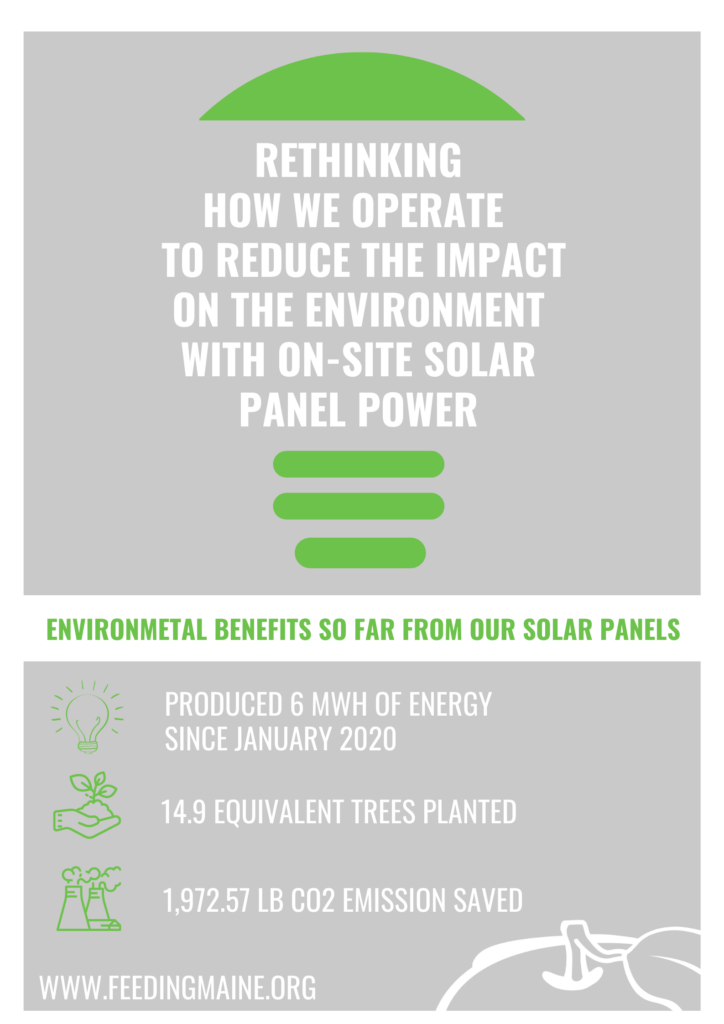Partnering to Feed Mainers in Need and Reduce Carbon Pollution
Good Shepherd Food Bank partnered with Maine-based ReVision Energy to install a solar array to generate on-site power to help refrigerate perishables while reducing emissions from regional fossil fuel plants. A total of 1,735 solar panels are in place and fully operational at both Auburn (895 panels) and Hampden (840 panels) distribution centers.
Thanks to community solar investors Fritz and Susan Onion who paid for the panels, Good Shepherd Food Bank is able to purchase the electricity generated by the solar panels on its properties in Auburn and Hampden at a below-market rate, realizing energy cost savings immediately without the upfront capital investment. Years down the road, the Food Bank will have the option to buy the panels at a depreciated cost to generate its own electricity for the long term. The first-year estimated solar production in Auburn is 355,831 kWh and 359,269 kWh in Hampden.
“Good Shepherd Food Bank had been considering solar energy for several years. Solar energy was of interest for many reasons, the most notable of which is that long-term energy costs savings allow the Food Bank to invest more in its work to fight hunger in Maine,” stated Kristen Miale, president of Good Shepherd Food Bank. “Additionally, studies show that climate change disproportionately impacts low-income populations, so reducing the impact on our environment is also aligned with our mission.”
As the largest hunger-relief organization in Maine, the Food Bank partners with more than 500 partner agencies to distribute healthy, nutritious meals to individuals and families struggling with hunger. In 2019, Good Shepherd Food Bank distributed more than 25 million meals throughout the state.
